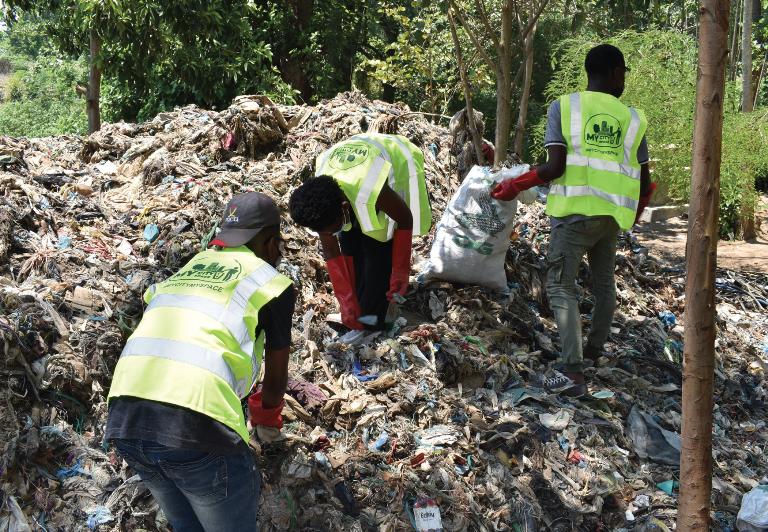The foul smell from Mudi River personifies the brunt city residents bear as people on the move, households and businesses turn waterways into dumpsites for waste they churn out daily.
The river that splits Blantyre City—like its likes in Lilongwe, Mzuzu and Zomba—is known to change colours and fumes depending on what is dumped in its course upstream.

Both city residents and passers-by want a stop to this, but an opinion is rising that on-off clean-up campaigns will not bring back the river’s lost glory unless pollution upstream stops.
Amid the rising demand for a cleaner Mudi, Nyasa Junior Academy students last week joined concerned residents in the fight to get rid of waste clogging the river.
Mudi, which runs through the heart of Blantyre central business district, has been an environmental health concern for decades, with polluters getting away with the crime as environment protectors seemingly look away.
Chisomo Mauwa, a Grade Nine teacher at the academy, led the students in cleaning up the foul-smelling river choked with plastic and industrial waste.
She said the class participated in the clean-up campaign realising the need for youth involvement in securing a green future.
Globally, the youth have become a formidable force in reminding world leaders of the importance to safeguard the shared planet from environmental catastrophes fuelled by human activity, including the rush for profits.
“We can make a difference,” says Mauwa. “We thought of joining the Mudi River Clean-Up campaign so that we could help save the planet. We hope it will continue for the good of the environment,” Maluwa said.
The teacher said the learners would like to carry on with the initiative along with their annual tree planting at the school.
“We planted mahogany (mbawa) ,” she said.
Thandiwe Mbonela, a student aged 14, said she was happy to be part of the group working to create a better environment for the young generation.
“The little steps we take today can make a difference tomorrow,” she said. “Simple things like picking trash or recycling waste can make a huge impact.”
Mbonela hoped the Mudi River clean-up effort will yield the desired results.
“In the next five years, I would like to see the amount of trash, especially plastics, reduced to almost zero. I would also like to see that there are fish as well,” she explained.
Mudi River Clean-Up supervisor Mervis Maigwa observed that the river is polluted by a heavy load of solid waste because most residents do not manage their leftovers responsibly.
“We are trying to reduce the amount of trash in the river because it contributes to climate change. So, we sort the waste we pick and we recycle it into different products, including paintings, bags,” sculptures and eco-bricks.
During the exercise, the class aged 13 to 15 separated plastics, fabrics and glass from heaps of waste for recycling.
They also planted bamboos along the riverbanks to reduce soil erosion which contributes to siltation and floods downstream.
Source: The Nation_Thursday, December 16, 2021_By Andrew Mtupanyama
